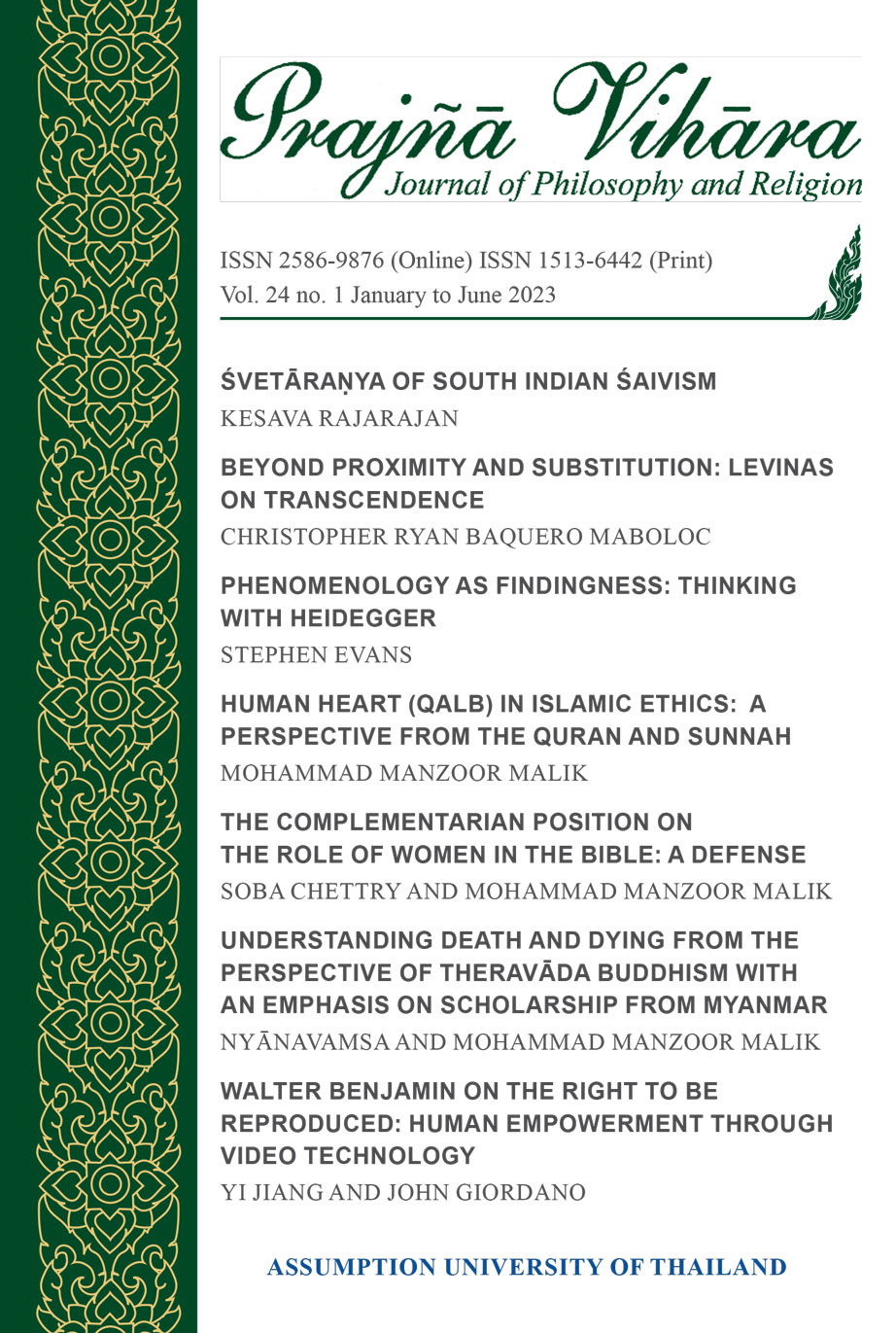THE COMPLEMENTARIAN POSITION ON THE ROLE OF WOMEN IN THE BIBLE: A DEFENSE
Abstract
There are two contrasting positions concerning status
of women built on Biblical verses: Egalitarians and
Complementarians. The egalitarian position asserts that
women and men are equal in all senses whereas the
complementarian position takes the view that men and
women complement one other. Therefore, both positions
have implications concerning the role of gender in society.
This article explores the passages in the Bible relevant to the
topic and how they provide a ground for both positions. The
main focus will be on the understanding and interpretation
of Bible verse (Gal 3:28). Based upon this examination, the
researcher will try to defend the Complementarian position.
References
CBE International. “History of CBE,” January 4, 2023. https://www.
cbeinternational.org/primary_page/cbes-history/.
CBMW. “Mission & Vision,” March 26, 2019. https://cbmw.org/about/
mission-vision/.
CBMW. “Our History,” April 6, 2021. https://cbmw.org/about/history/.
CBMW. “Our History,” April 6, 2021. https://cbmw.org/about/history/.
Calvin, John. Commentary on Genesis - Volume 1 - Enhanced Version
(Calvin’s Commentaries). 1.1. Christian Classics Ethereal Library,
Grady, Lee. 10 Lies the Church Tells Women. New York, United States:
Penguin Random House, 2006.
Grudem, John Piper Wayne. Recovering Biblical Manhood and
Womanhood:
A Response to Evangelical Feminism by Piper, John (1991) Paperback.
Crossway, 1992.
Groothuis, Rebecca. Good News for Women: A Biblical Picture of Gender
Equality. Zaltbommel, Netherlands: Van Haren Publishing, 1996.
Grudem, Wayne. Evangelical Feminism and Biblical Truth: An Analysis
of More Than 100 Disputed Questions. Crossway, 2012.
Heeren, Jennifer. “Why Did God Create Woman?” Crosswalk.com, July
, 2019. https://www.crosswalk.com/faith/women/why-did-godcreate-
woman.html.
Recovering Biblical Manhood and Womanhood: A Response to Evangelical
Feminism [2006]. Crossway, 2006.
Piper, John and Wayne Grudem. 50 Crucial Questions: An Overview of
Central Concerns about Manhood and Womanhood. Crossway,
———. Recovering Biblical Manhood and Womanhood: A Response to
Evangelical Feminism. Amsterdam, Netherlands: Adfo Books,
Strauch, Alexander. A Study Guide to Biblical Eldership: Twelve Lessons
for Mentoring Men for Eldership. Lewis & Roth Publishers, 1997.
“Together for the Gospel,” June 17, 2016. Accessed February 24, 2023.
Downloads
Published
Issue
Section
License
Consent to Publish and Transfer of Copyright
By publishing in Prajñā Vihāra, the author agrees to transfer and assign to Assumption University of Thailand as the Publisher of the Journal, the copyright to the Article in any form, including any and all rights, interests and claims related to it.
The author does retain the following rights:
- The right to make further copies of the published article for their use in classroom teaching.
- The right to reuse all or part of the published article in a compilation of his or her own works or in textbooks of which they are the author or coauthor.
- The right to make copies of the published article for internal distribution within their academic institution.
- All proprietary rights other than copyright, such as patent rights.
- The Article is his or her original work, and has not been published previously and is not under consideration for publication elsewhere.
- It does not contain any matter that is obscene, libelous, or contrary to law.
- They have obtained the necessary license or written authority and paid any and all related fees for the use and reproduction of text, tables, illustrations and other copyrighted work from the owners of the intellectual property rights, and can furnish the Publisher copies of the license/written authority and proof of payment of related fees upon the signing of this Agreement.
- They have the consent of the Co-Authors of the article upon the signing of this Agreement.
- In the event that they intend to republish, reprint or translate all or part of the Article in other publications, they will secure the prior written permission from the journal Editor.
Prajñā Vihāra adopts the Creative Commons Attribution (CC BY-NC-ND) license


